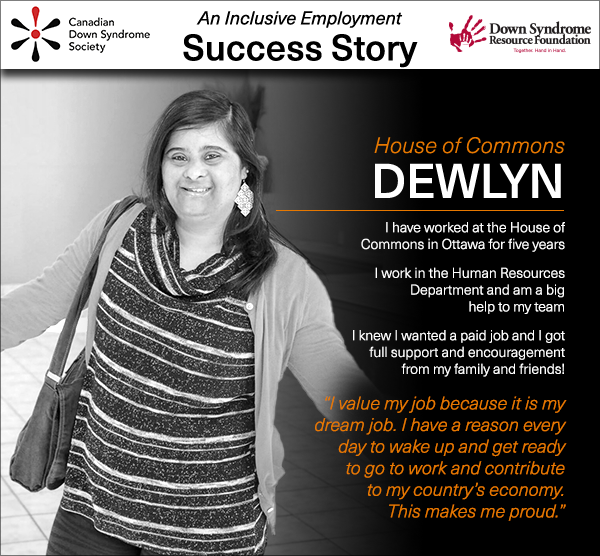Employment Success Story
Kevin LaChance
Kevin answers most interview questions with “I like…” or, “I love”, and speaks with a huge, enthusiastic smile across his face. He’s been happy with most of the positions he’s had, from McDonalds to sporting good stores, from pubs to a ski club race crew, and others in between. Now 26 years old, Kevin has two paid jobs, one at a local pub and one at a bakery in Heathcote, Ontario.
Kevin’s resume that he and his parents diligently keep up to date is impressive, but getting any experience to put on a resume in the beginning was a challenge. As his mother explains, “Kevin took a co-op program twice in high school. This included job readiness prep and a non-paid, half-day job for the semester. Although wonderful opportunities, they didn’t lead to ongoing employment.” Following graduation, bigger employment challenges loomed, “We were actually turned away from a local youth employment agency, and re-directed to a disability focused agency, who of course was not able to provide ability-focused services. What’s sad is that as a Canadian, he met all the criteria for service from any funded employment agency, but had to be separated out to a disability service agency.”
As many with Down syndrome find, after being very included in their community over the school years, upon finishing school they are now ‘disabled’, and need to be segregated in order to receive services. With few attending post-secondary schools, if planning after graduation does not begin early and pre-employment skill development is not focused upon, many feel as though they have ‘fallen off a cliff’ after graduation, with long days at home, away from their peers.
But Kevin and his family did focus on a life after school, and are big believers in the ‘ability’ side of employment. Their advice is “…to approach the work world focusing on what can be accomplished versus what can’t be accomplished (yet). There will always a creative solution to be found.” They add, “Listen to your child if they tell you they really want to do something, even if involvement is small and hours are limited, and also listen when they say they don’t like a job.”
In addition to keeping Kevin’s resume up to date, attending job fairs and meeting with youth employment agencies, his family works hard with him on interview skills, saying “We attend with him to re-word interview questions, because often people-first language is not used which makes some questions complicated. We also ask for extra time to respond, to help Kevin organize his thoughts.”
“I love going to work and being part of the team, ” says Kevin. “I like to meet people and talk, I like to be popular. I like to tidy, I am good at that. I like to use machines, I can do that,” he continues, “I love to taste samples, and to get my paycheque. I am saving for Hawaii.” Kevin is a very loyal employee – it’s clear when he speaks that he doesn’t consider his jobs a stop-gap to getting another job, as other typical young adults may do.
Michelle, Kevin’s employer at the Blackbird Pie Company, says that she didn’t set out to hire someone with Down syndrome, “Kevin simply had the experience that we were looking for. His resume did not list all of the jobs he had done, rather, it focused on the skills he had, and based on his skill set he was the perfect fit.”
Hiring persons with disabilities has also solved a business issue Blackbird was facing. “Due to our location in a rural setting, we have a limited population to draw upon, and are challenged to find employees,” Michelle says. She encourages businesses who share this challenge to consider hiring people with disabilities, ” …who they might not previously have even considered.” She recommends, “Don’t make assumptions based on disability. Teach additional tasks, don’t let your staff get bored, and above all don’t ever assume they can’t do something. Kevin thrives with support and consistency, but also loves trying new things. We give him tasks suited to his skillset and he’s always surprising us.”



